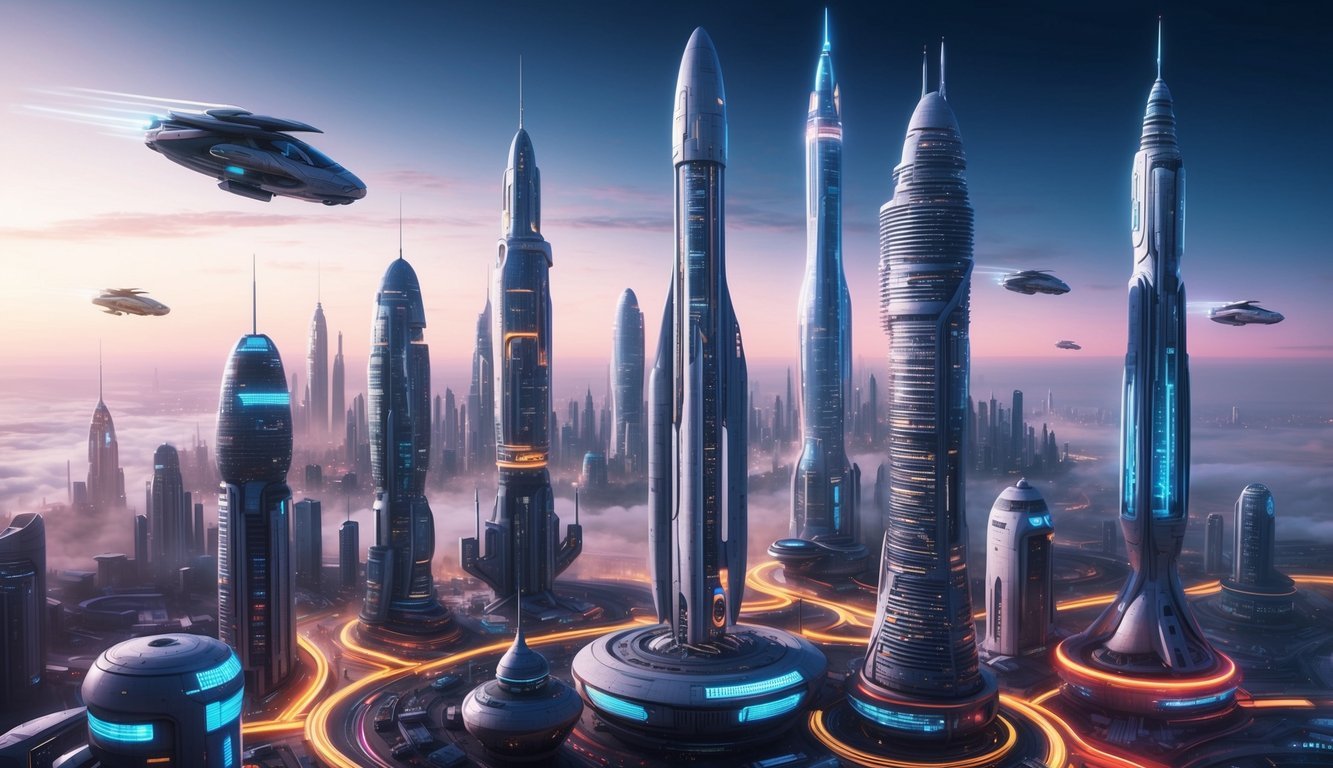Imagine a universe where advanced technology meets epic storytelling.
That’s the allure of sci-fi RPGs.
These games transport you to futuristic worlds, alien planets, and dystopian societies.
In these games, your choices shape the fate of entire civilizations.
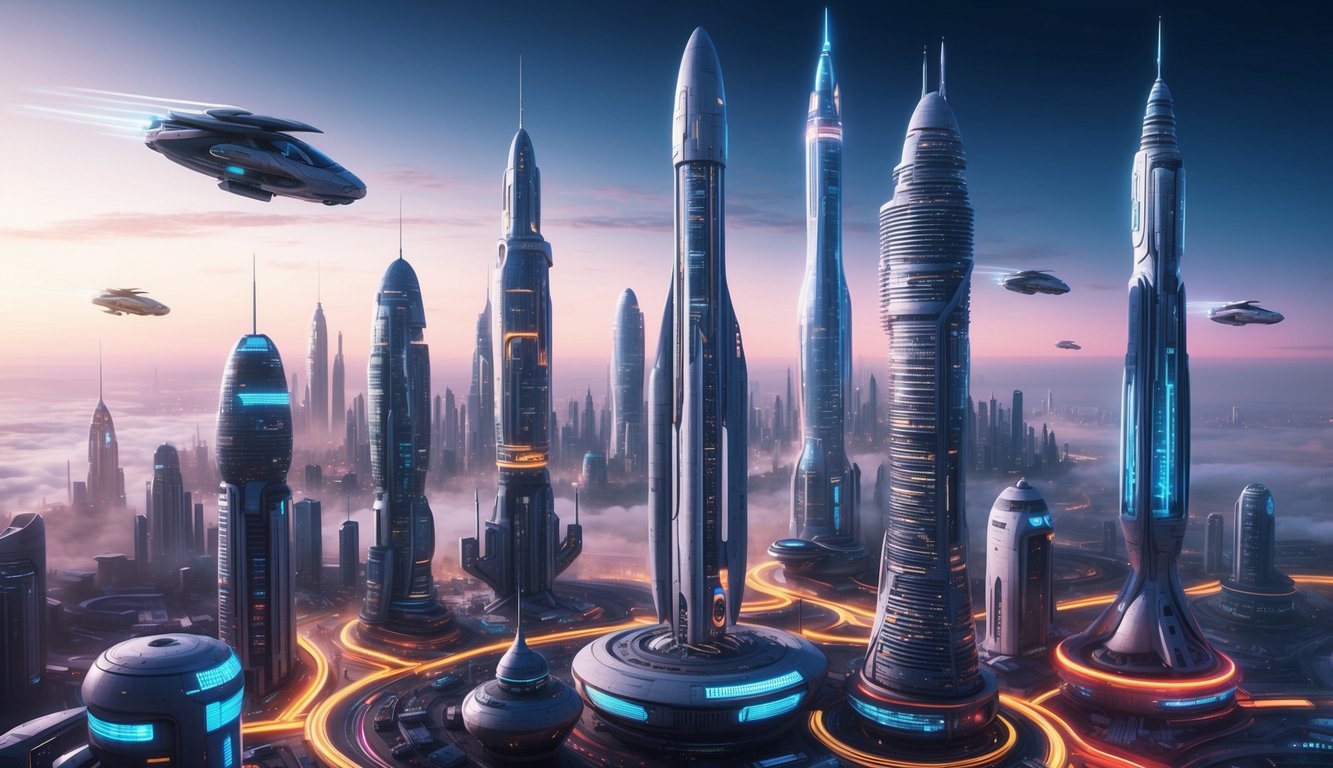
Sci-fi RPGs offer a unique blend of immersive storytelling, character development, and futuristic settings that make them stand out in the RPG genre. From battling alien threats in Mass Effect to exploring post-apocalyptic wastelands in Fallout, these games push the boundaries of imagination.
You’ll encounter cutting-edge weapons, interact with AI companions, and grapple with complex moral dilemmas.
Whether you’re a fan of space operas, cyberpunk noir, or post-apocalyptic adventures, there’s a sci-fi RPG out there for you.
Some classics like Star Wars: Knights of the Old Republic have stood the test of time, while newer entries continue to redefine what’s possible in the genre.
Get ready to dive into worlds where science and fiction collide, creating unforgettable gaming experiences.
Defining Sci-Fi RPG

Sci-Fi RPGs blend futuristic elements with role-playing mechanics, creating immersive experiences that transport you to otherworldly realms.
These games challenge your imagination and decision-making skills as you navigate through technologically advanced societies.
Core Elements of Sci-Fi RPGs
Sci-Fi RPGs typically feature advanced technology, alien races, and space exploration.
You’ll often encounter AI companions, androids, and cybernetic enhancements.
Character customization is key, allowing you to shape your protagonist’s abilities and backstory.
Storytelling in these games often revolves around themes of humanity’s future, first contact scenarios, or dystopian cyberpunk settings.
You’ll face moral dilemmas and make choices that impact the game world.
Combat systems vary, but usually involve a mix of futuristic weaponry and special abilities.
Many Sci-Fi RPGs incorporate skill trees or perk systems that let you specialize your character as you progress.
Evolution of the Genre
Early Sci-Fi RPGs were text-based adventures, gradually evolving into isometric games like Fallout.
As technology advanced, the genre embraced 3D graphics and more complex gameplay mechanics.
Modern Sci-Fi RPGs often feature vast open worlds and intricate storylines.
Games like Mass Effect and Cyberpunk 2077 have pushed the boundaries of the genre, offering cinematic experiences with branching narratives.
The rise of indie development has led to innovative takes on Sci-Fi RPGs, experimenting with unique art styles and gameplay concepts.
You’ll find games that blend Sci-Fi with other genres, creating hybrid experiences that challenge traditional definitions.
Virtual reality is beginning to make its mark on Sci-Fi RPGs, promising even more immersive experiences in the future.
As technology continues to evolve, you can expect the genre to push new frontiers in storytelling and player interaction.
Iconic Sci-Fi RPG Titles
Sci-fi RPGs have given us some of the most memorable gaming experiences.
These titles blend futuristic settings with deep storytelling and character development.
Mass Effect Trilogy
You’ll find yourself immersed in a rich galactic universe as Commander Shepard.
The Mass Effect trilogy lets you shape the fate of the galaxy through your choices and relationships.
Each game builds on your decisions, creating a personalized epic saga.
The combat evolves from tactical to more action-oriented as the series progresses.
You’ll encounter diverse alien species, each with unique cultures and histories.
The Reapers, ancient machine gods, serve as the overarching threat.
Your squad members become some of gaming’s most beloved characters.
Their personal stories and loyalties add depth to the narrative.
The trilogy’s ending sparked intense debate among fans, showcasing its impact on players.
Deus Ex Series
In Deus Ex, you step into a cyberpunk world of conspiracy and augmented humans.
The original game set a new standard for player choice in 2000.
You can approach objectives through stealth, hacking, or combat.
Deus Ex: Human Revolution revitalized the series in 2011.
It explored themes of transhumanism and corporate power.
The game’s gold-tinged visuals created a distinct aesthetic.
Augmentations let you customize your playstyle.
You might invest in hacking skills or enhance your combat abilities.
The series excels at creating dense, atmospheric hub areas to explore.
Dialogue choices and side quests flesh out the world and its characters.
You’ll uncover layers of conspiracy as you progress through each game.
Fallout Series
Fallout drops you into a post-apocalyptic wasteland filled with dark humor and 1950s aesthetics.
Each game lets you create a unique character and shape their destiny.
Fallout: New Vegas stands out for its branching narrative and faction system.
Your choices have far-reaching consequences on the Mojave Wasteland.
The game’s writing balances humor with poignant moments.
You’ll encounter mutated creatures, struggling settlements, and remnants of old-world technology.
The V.A.T.S. combat system adds a tactical element to firefights.
Exploring abandoned vaults reveals stories of pre-war society and failed experiments.
Side quests often present moral dilemmas with no clear right answer.
Star Wars: Knights of the Old Republic
KOTOR brings the Star Wars universe to life in RPG form.
Set thousands of years before the films, you’re free to forge your own path as a Jedi or Sith.
The game’s morality system influences your Force powers and companion reactions.
Your choices shape the fate of the galaxy and lead to different endings.
You’ll visit iconic planets like Tatooine and Kashyyyk.
Each location is filled with side quests and lore to discover.
The turn-based combat lets you pause and plan your actions.
KOTOR’s twist remains one of gaming’s most memorable moments.
The sequel expanded on the original’s themes with a darker, more nuanced take on the Force.
Game Mechanics and Innovation
Sci-fi RPGs push the boundaries of gameplay with unique features that set them apart.
These innovations enhance your experience and keep you coming back for more.
Branching Storylines
You’ll find your choices truly matter in many sci-fi RPGs.
Games like Mass Effect let you shape the narrative through dialogue options and critical decisions.
Your actions can lead to different endings, allies, or even the fate of entire alien species.
Some games take this further with dynamic quest systems.
As you progress, new missions pop up based on your previous choices.
This creates a personalized adventure that feels tailor-made for you.
Developers are experimenting with AI to create even more reactive worlds.
Imagine NPCs that remember your past interactions and adapt their behavior accordingly.
Combat Systems
Sci-fi settings allow for creative combat mechanics.
You might find yourself using psychic powers, hacking enemy robots, or piloting giant mechs.
Many games blend real-time action with strategic elements.
For example, you could pause the battle to issue commands to your squad mates or activate special abilities.
Some titles introduce unique twists on traditional RPG combat.
The VATS system in Fallout lets you target specific body parts for tactical advantages.
Other games might have you manipulating gravity or time itself during fights.
Character Customization
Creating your own space hero is a key part of sci-fi RPGs.
You’ll often have extensive options for appearance, backstory, and skills.
Many games let you mix and match different abilities to create hybrid classes.
Want to be a tech-savvy sniper or a biotic-wielding engineer? The choice is yours.
Some titles take customization beyond just stats.
You might be able to upgrade your character with cybernetic implants or alien DNA, fundamentally changing how you play.
As technology advances, we’re seeing more detailed character creators.
You can fine-tune every aspect of your avatar’s appearance, down to individual facial features.
The Influence of Tabletop RPGs
Tabletop RPGs have profoundly shaped the sci-fi gaming landscape.
Their innovative storytelling and complex worlds have inspired digital games and expanded the boundaries of sci-fi narratives.
Sci-Fi Themes in Tabletop RPGs
You’ll find a rich tapestry of sci-fi themes in tabletop RPGs. “Those Dark Places” plunges you into a gritty, industrial future where corporations rule. “Scum and Villainy” lets you live out your space opera fantasies as a ragtag crew. “Starfinder” blends magic and technology in a unique space adventure.
“Tales from the Loop” offers a nostalgic ’80s sci-fi experience.
For cyberpunk fans, “Cyberpunk Red” immerses you in a neon-lit dystopia.
These games push the boundaries of imagination, letting you explore alien worlds, fight cosmic horrors, or navigate complex political landscapes.
From Tabletop to Digital RPGs
Tabletop RPGs have significantly influenced digital RPGs.
You can see their impact in character creation systems, dialogue choices, and open-world exploration. “Star Trek Adventures” brings the beloved franchise to your tabletop, inspiring video game adaptations.
Many video game developers draw inspiration from tabletop mechanics.
You’ll notice skill checks, inventory management, and party-based combat in digital RPGs – all rooted in tabletop traditions.
The storytelling techniques and world-building approaches from tabletop games have also found their way into digital narratives, creating richer, more immersive experiences for players.
Graphical and Technical Advances
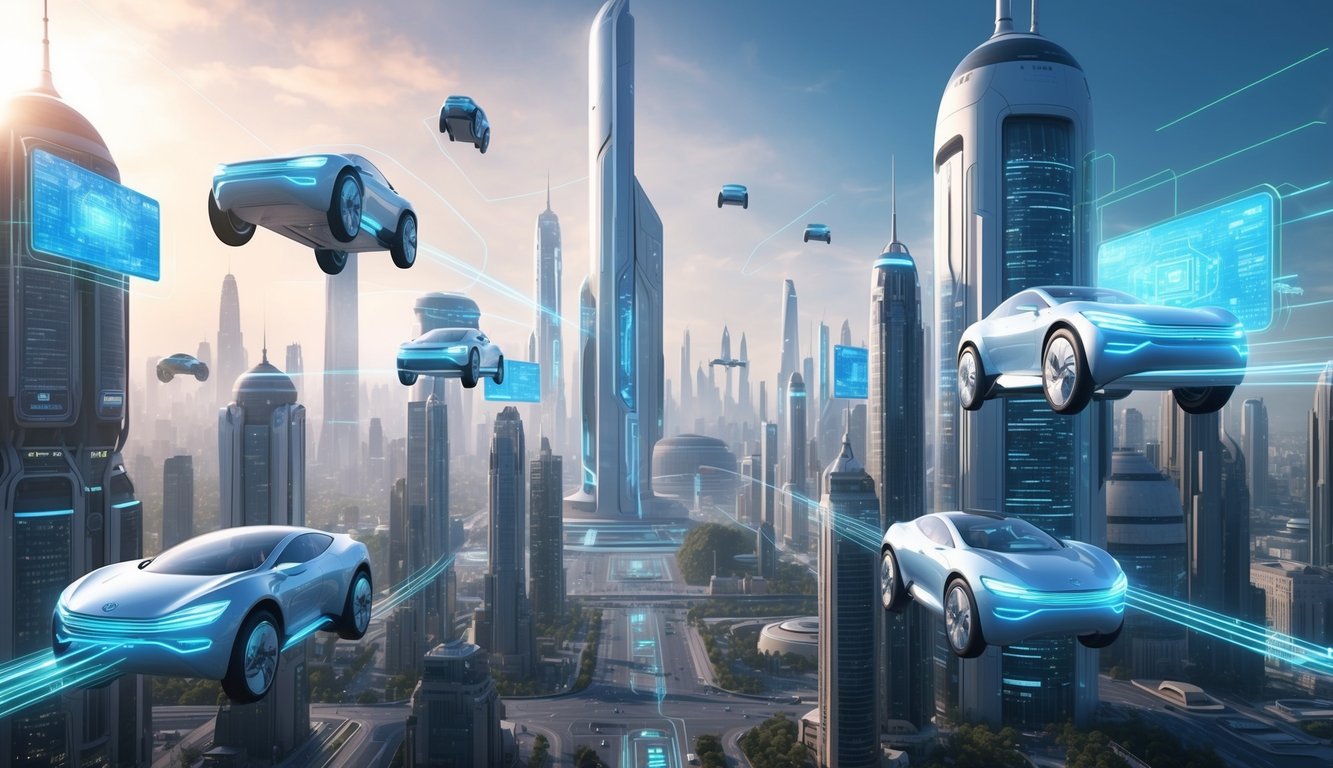
Sci-fi RPGs have made incredible leaps in visuals and gameplay mechanics.
You’ll be amazed by the lifelike characters and sprawling virtual worlds that push hardware to its limits.
Advancements in Game AI
AI in sci-fi RPGs has come a long way since the days of System Shock 2.
You’ll notice NPCs that react more naturally to your choices and actions.
In Cyberpunk 2077, CD Projekt Red implemented advanced crowd AI, making Night City feel alive and bustling.
Enemy AI has also improved dramatically.
You’ll face foes that use cover, flank your position, and adapt to your tactics.
Some games even use machine learning to create unique challenges each time you play.
Voice recognition is another exciting frontier.
Imagine having natural conversations with in-game characters, using your own voice to influence the story.
Immersive Virtual Worlds
The virtual worlds in sci-fi RPGs have become incredibly detailed and interactive.
You can now explore vast, seamless environments without loading screens.
Ray tracing technology brings realistic lighting and reflections to futuristic cityscapes.
In 2024, you’ll see games pushing the boundaries of photorealism, blurring the line between cutscenes and gameplay.
Virtual reality adds another layer of immersion.
You can step into alien worlds, feeling like you’re really there.
Haptic feedback suits are in development, allowing you to physically feel the game world.
Procedural generation techniques create endless variations of planets and quests, ensuring each playthrough is unique.
Building a Sci-Fi World
Creating a captivating sci-fi world involves crafting unique alien species and designing influential mega-corporations.
These elements form the backbone of your galactic setting, shaping the experiences players will encounter.
Creating Alien Species
When designing aliens, consider their biology, culture, and technology.
Think about how their home planet’s environment shaped their evolution.
Are they silicon-based life forms? Do they communicate through bioluminescence?
Give each species distinct traits that impact gameplay.
Maybe one race has natural camouflage abilities, while another excels at space navigation.
Create conflicts and alliances between species to add depth to your universe.
Don’t forget to develop alien languages and customs.
These details can lead to interesting roleplaying scenarios and quests for your players.
Designing Mega-Corporations
In many sci-fi settings, mega-corporations wield immense power.
You can define their specialties, such as cybernetics, terraforming, or interstellar transport.
Also, establish their influence over governments and daily life.
Create memorable logos and slogans for each corporation.
Then, develop rival companies and ongoing corporate wars that players can get caught up in.
Consider how these entities impact technology and society in your world.
Think about corporate structures and the key figures running these vast empires.
Are there shadowy boards of directors? Charismatic CEOs? Use these elements to craft engaging storylines and potential adversaries for your game.
Sub-Genres and Hybrids
Sci-fi RPGs love to blend different elements, creating unique and captivating experiences.
These crossovers often result in rich, complex worlds that challenge your imagination and gameplay skills.
Cyberpunk and Post-Apocalyptic Crossovers
You’ll find that cyberpunk and post-apocalyptic settings frequently intertwine in sci-fi RPGs.
Picture yourself in a neon-lit dystopia where mega-corporations rule, but society has crumbled.
Games like “Shadowrun” mix high-tech gadgets with a world recovering from disaster.
In these games, you might hack into corporate databases one moment and scavenge for supplies in irradiated wastelands the next.
The blend creates a gritty atmosphere where survival skills are as crucial as your ability to navigate virtual reality.
Horror and Sci-Fi RPG Blends
When sci-fi meets horror in RPGs, you’re in for a spine-chilling adventure.
Imagine exploring an abandoned space station, your flashlight beam revealing alien horrors lurking in the shadows.
Games in this category often draw inspiration from classics like “Alien” or “Event Horizon.”
You’ll face psychological terrors and monstrous creatures while trying to unravel cosmic mysteries.
These games challenge you to manage limited resources and maintain your sanity in the face of otherworldly threats.
The combination of futuristic technology and primal fears creates a uniquely unsettling experience.
The Cultural Impact of Sci-Fi RPGs
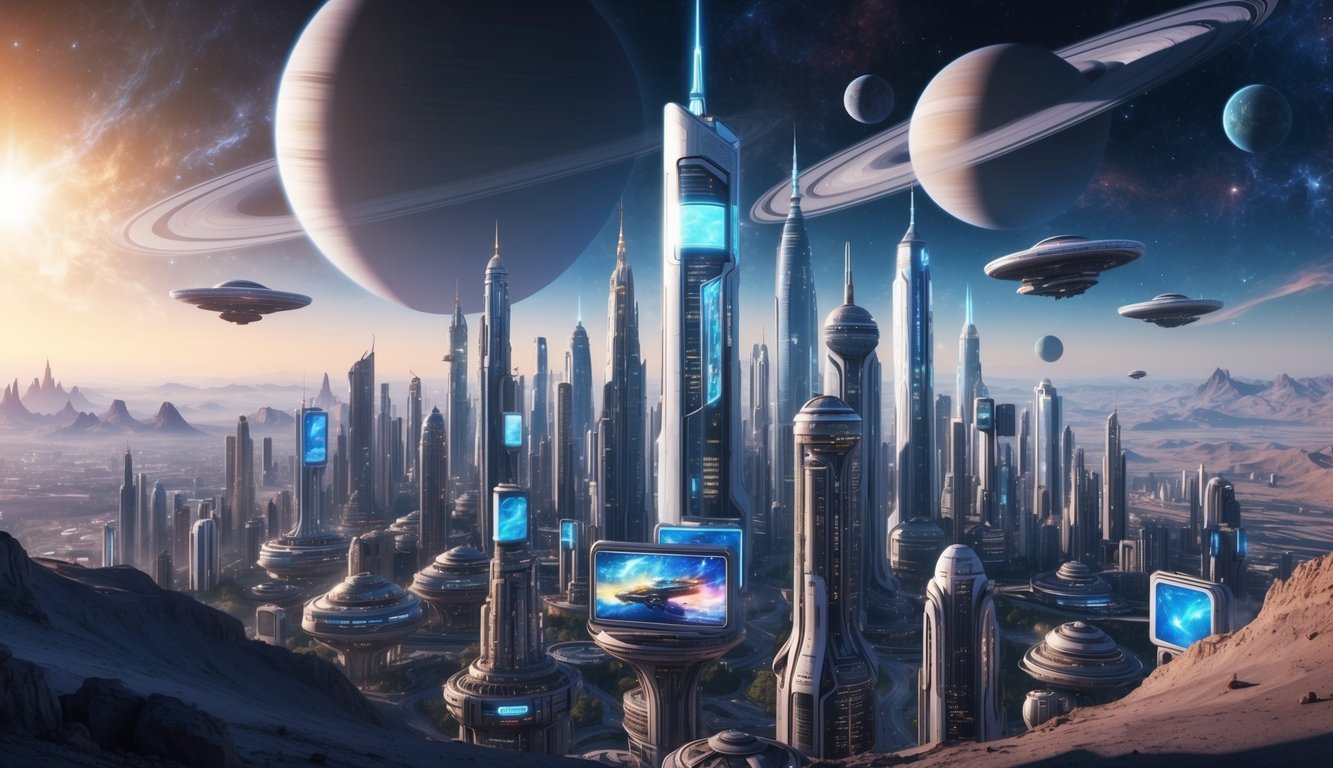
Sci-fi RPGs have left an indelible mark on entertainment and popular culture.
These games transport you to futuristic worlds, shaping how you envision technology and space exploration.
Sci-Fi RPGs in Media
You’ve likely seen sci-fi RPG elements creep into movies and TV shows. “Final Fantasy VII” inspired a full-length animated film, expanding its universe beyond gaming.
The “Mass Effect” series spawned novels and comic books, enriching its lore.
You might notice similarities between sci-fi RPG aesthetics and blockbuster films’ set designs.
TV shows sometimes borrow storytelling techniques from these games.
Multi-layered plots and character development in sci-fi RPGs have influenced how some series structure their narratives.
You can spot RPG-like dialogue choices in interactive Netflix specials.
Influence on Pop Culture
Sci-fi RPGs shape how you talk about the future. “Chrono Trigger” popularized time travel concepts in gaming, influencing discussions about temporal paradoxes. “Earthbound” brought quirky, modern-day sci-fi to a wider audience, inspiring offbeat humor in other media.
You might use terms like “tech trees” or “skill points” in everyday conversation, not realizing they originate from RPG mechanics.
Cosplay events often feature characters from sci-fi RPGs, with fans meticulously crafting futuristic outfits and props.
Music from these games, like “One-Winged Angel” from FFVII, has become iconic.
You might hear orchestras performing RPG scores in concert halls, elevating game music to high art.
Player Community and Mods
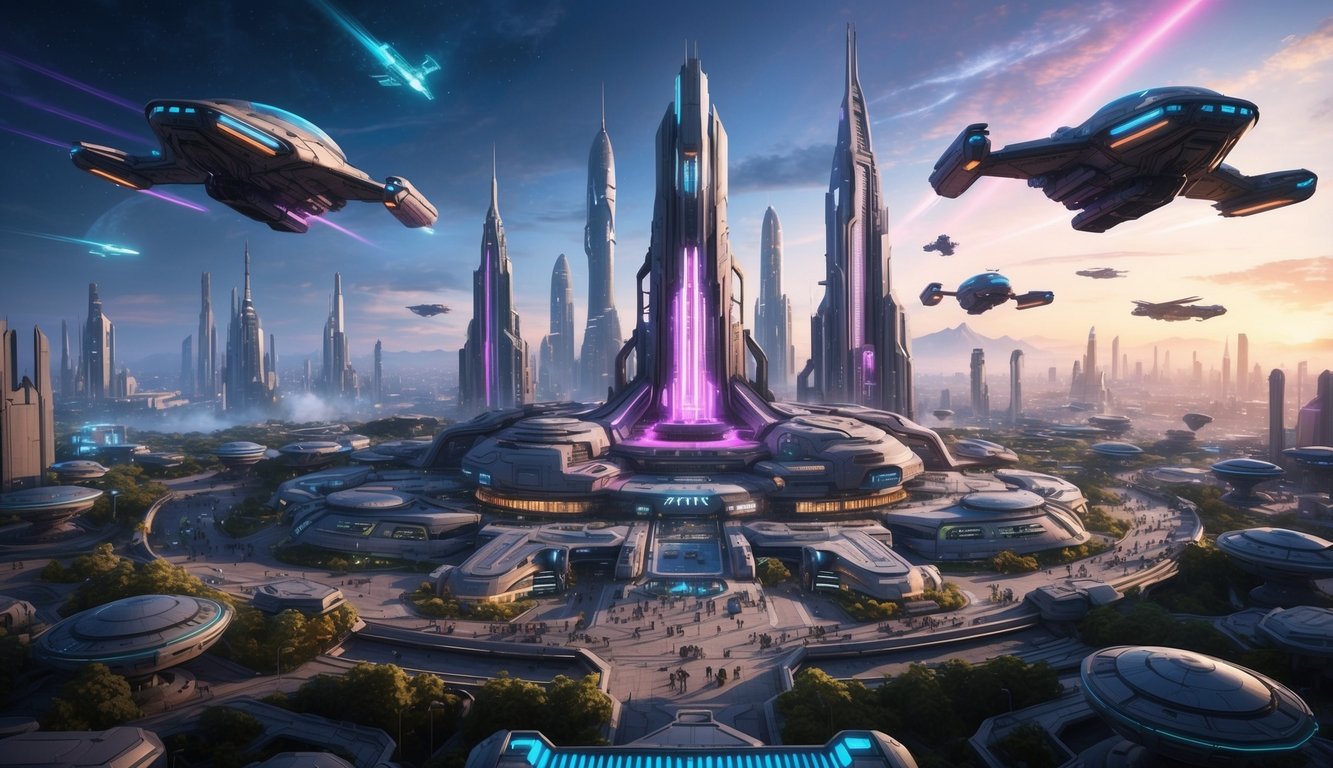
Sci-fi RPGs thrive on player engagement and creativity.
You’ll find vibrant communities and endless possibilities through modding, breathing new life into your favorite games.
The Role of Modding
Ever wanted to tweak your sci-fi RPG experience? Modding is your ticket to customization.
In games like Skyrim, you can add futuristic elements to blend fantasy and sci-fi.
Borderlands 3 mods let you adjust weapon stats or add new gear.
These tweaks can transform your gameplay, making each playthrough unique.
For Shadowrun Returns, mods expand the cyberpunk universe with new missions and characters.
You’re not just playing the game – you’re shaping it.
Community-Driven Content
Your fellow players are the lifeblood of sci-fi RPGs.
Fan-made quests, character skins, and even total conversions are just a click away.
Community forums buzz with tips, lore discussions, and mod recommendations.
You’ll find passionate players ready to help or share their latest creations.
Some games, like Skyrim, have built-in mod browsers.
This makes discovering and installing new content a breeze.
You’re part of a collaborative ecosystem, where players become creators.
Remember, many of today’s game developers started as modders.
By engaging with community content, you’re supporting the next generation of sci-fi RPG makers.
The Future of Sci-Fi RPGs
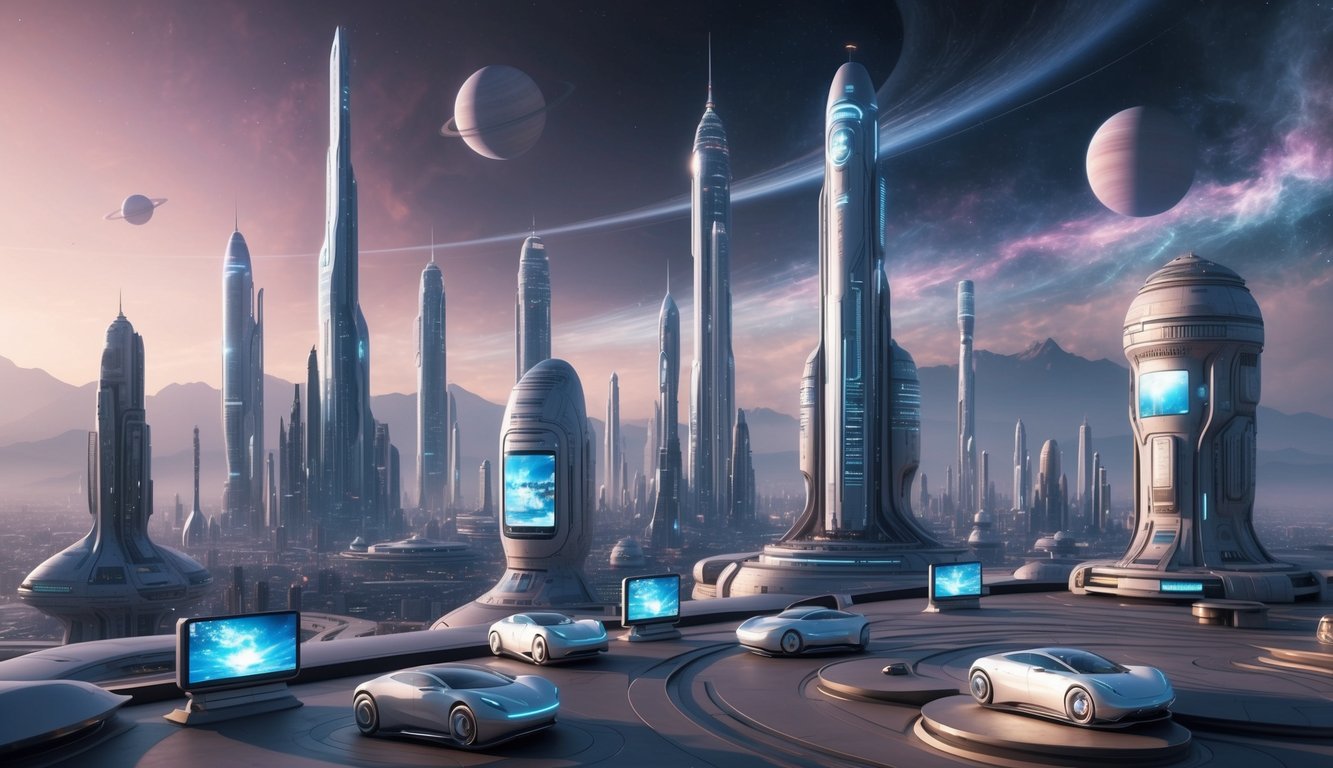
Sci-fi RPGs are poised for an exciting evolution, blending cutting-edge technology with immersive storytelling.
You’ll soon experience groundbreaking titles and innovative gameplay mechanics that push the boundaries of the genre.
Emerging Sci-Fi RPG Titles
Starfield is set to redefine space exploration RPGs.
You’ll dive into a vast universe with unprecedented freedom to chart your own course.
Obsidian Entertainment’s Avowed promises a unique first-person RPG experience in a fantasy-meets-sci-fi setting.
Exodus, revealed at The Game Awards, offers a cinematic action-adventure RPG that’ll transport you to new worlds.
You’ll encounter next-gen graphics and storytelling from industry veterans.
Lost Soul Aside blends sci-fi and fantasy elements in a fast-paced action RPG.
You’ll wield both swords and futuristic tech in this visually stunning game.
Innovations on the Horizon
AI is revolutionizing NPC interactions in sci-fi RPGs.
Characters that adapt to your choices will engage you, creating more dynamic and personalized storylines.
Procedural generation techniques are evolving.
They offer you near-infinite exploration possibilities in vast sci-fi universes.
Virtual and augmented reality integration is on the rise.
You’ll soon be able to physically step into alien worlds and interact with sci-fi environments like never before.
Multiplayer elements are expanding in traditionally single-player RPGs.
You’ll team up with friends to tackle epic space battles or colonize distant planets together.

